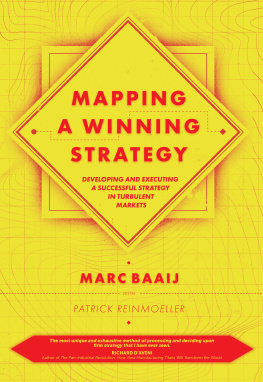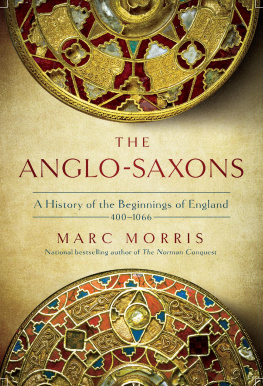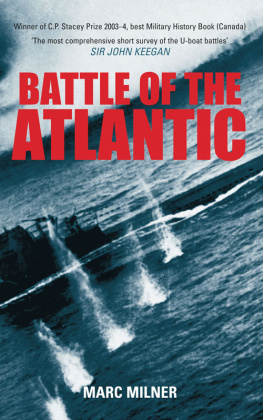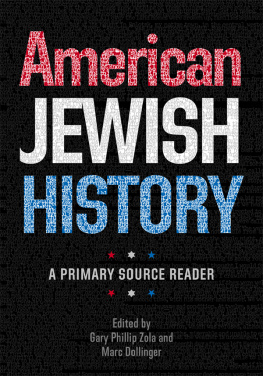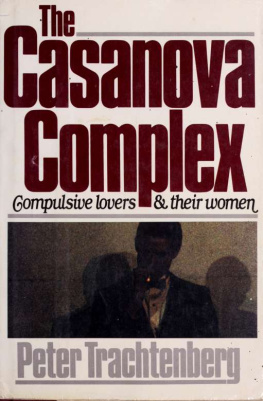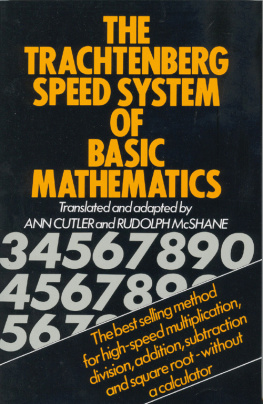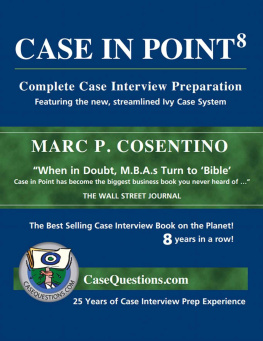Copyright 1991 by Princeton University Press
Published by Princeton University Press, 41 William Street,
Princeton, New Jersey 08540
All Rights Reserved
Library of Congress Cataloging-in-Publication Data
Trachtenberg, Marc, 1946
History and strategy / Marc Trachtenberg.
p. cm.(Princeton studies in international history and politics)
Includes bibliographical references and index.
ISBN 0-691-07881-5 (cloth : alk. paper)ISBN
0-691-02343-3 (pbk. : alk. paper)
eISBN 978-0-691-21798-7
1. Strategy. 2. Military history, Modern20th century.
I. Title. II. Series.
U163.T73 1991
355.40904dc20 9021036
R0
Preface
THE ESSAYS in this volume are concerned with the relationship between history and strategy. They are the product of a historians attempt to come to terms with the way people from other fields, especially political scientists and economists, think about the problem of war and peace.
This, however, was not something that I had set out originally to do. The project began around 1980 in a more normal way. I wanted to make sense of the whole postWorld War II period, to understand it in much the same way that historians try to understand the interwar period, or the period before the First World War. There was a story to be writtennot a simple recounting of events, but an account that would convey some sense for what was really driving things. It was obvious that the nuclear revolution played a central role in the story; it was equally obvious that I did not know the first thing about nuclear issues. I wanted to get my bearings in what was for me an entirely new field, and so I began to read the most basic works on nuclear issues, books like Bernard Brodies Strategy in the Missile Age and Thomas Schellings Arms and Influence.
As I began to go through these writings, I was struck both by the extraordinary intellectual power of this body of theory, but also by what was for me its strangeness. These works reflected a way of looking at the worldassumptions about what is important, about what makes for war or for international stabilitythat was very different from the way I had come to see things. This was not just the result of some personal idiosyncrasy on my part. There really was a gap between the disciplines. Everyone may have been concerned in the final analysis with the same basic problem, the problem of war and peace. But scholars from different fields approached it in quite different ways. It was remarkable that whatever their differences on specific problems of interpretation, all the diplomatic historians I knew and respected shared a common conceptual framework, a common sense for what makes the history of international politics run. But the strategists clearly started from an entirely different set of assumptions.
Perhaps the most striking feature of the strategic literature was the great emphasis it placed on purely military factors in explaining why wars break out: the advantages of getting in the first blow could cause even a relatively minor political dispute to escalate into armed conflict. The clearest example of this was an extraordinary passage in Schellings very influential article on The Reciprocal Fear of Surprise Attack:
If surprise carries an advantage, it is worth while to avert it by striking first. Fear that the other may be about to strike in the mistaken belief that we are about to strike gives us a motive for striking, and so justifies the others motive. But, if the gains from even successful surprise are less desired than no war at all, there is no fundamental basis for an attack by either side. Nevertheless, it looks as though a modest temptation on each side to sneak in a first blowa temptation too small by itself to motivate an attackmight become compounded through a series of interacting expectations, with additional motive for attack being produced by successive cycles of He thinks we think he thinks we think... he thinks we think hell attack; so he thinks we shall; so he will; so we must.
It would be amazing, I thought, if there had ever been a single statesman who had thought in such termswho took the analysis, that is, past the first or at most the second cycle. As pure theory, the passage was obviously brilliant. But in the final analysis, wasnt it just a castle in the air? What did it have to do with the way the real world works?
And yet it was also clear that there was something real here. The professional diplomatic historians as a rule never paid much attention to the military side of the story. While military power as such was always seen as very important, the coming of a war was never viewed as the product of a dynamic that was largely military in nature. We all took it for granted that war was essentially the outcome of political conflict; it came about as the result of a political process; the key decisions were made for political reasons. Purely military factors, such as the desire to strike before being struck, or (in longer-range terms) before the military balance became unfavorable, were seen as playing at best a very marginal role. We scarcely talked about preemptionat least not in a purely military sense This final phrase essentially captured the attitude of our whole profession.
But was it possible that our traditional approach had been too narrow? The strategists were certainly not stupid. Their historical arguments often tended to be amateurish, but still they might be on to something. It was therefore worth taking their ideas seriously. Even if they turned out to be wrong, they might be wrong in such interesting ways that the whole process of coming to grips with their arguments might lead to some real insights. And there was always the possibility that the diplomatic historians had missed something crucial. This, it seemed, was most likely for the nuclear period, where serious research was just beginning, but it also might be the case for earlier periods as well. Perhaps the strategists had been able to intuit things through the pure power of their intellect that we historians, immersed in our documents, had somehow simply missed.
The sort of thinking that had emerged in the 1950s and 1960s as people tried to grapple with the implications of the nuclear revolution was, in any case, interesting in its own right as a historical phenomenon. These ideas had clearly played a certain political role in the United States, especially during the Kennedy period. It therefore seemed to me that doing an intellectual historya study of how this body of thought took shape would be a good way of getting a handle on this set of problems. It might also shed some light on the evolution of policy. And finally, doing this sort of history was a means of putting some distance between oneself and ideas that one might otherwise tend to accept uncritically. Intellectual history, as Brodie himself pointed out, is a form of intellectual liberation: ideas that one might regard as natural and inevitable turn out to be the product of a specific historical process, and by tracing their evolution, one can glimpse the arbitrariness of views which we previously regarded as laws of nature.



